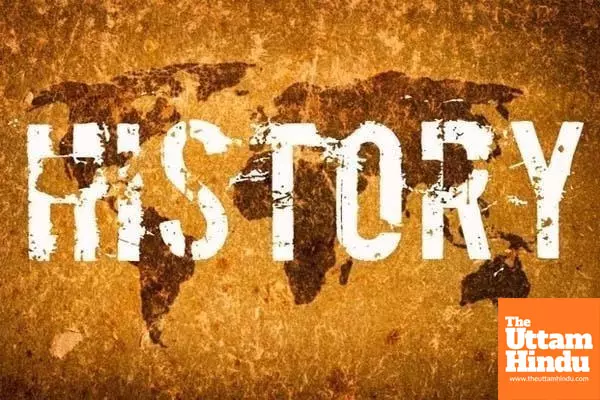December 15: A Day of Tragedy and Triumph – Sardar Patel's Death and Other Game-Changing Moments in History!

December 15 holds historical significance with numerous important events in both Indian and world history. Below is a detailed overview of key events that occurred on this day.
>1749: The death of Shahu, the grandson of the Maratha king Chhatrapati Shivaji, marked an important moment in the history of the Maratha Empire.
>1803: The East India Company gained control over Odisha (then known as Orissa), expanding its influence in India during the colonial era.
>1911: The Banaras Hindu University Society was established, leading to the foundation of one of India's premier educational institutions.
>1916: During World War I, the Battle of Verdun saw France emerge victorious against Germany, marking a significant turning point in the war.
>1917: The Moldavian Republic declared its independence from Russia, further shaping the geopolitical landscape of Eastern Europe.
>1950: Sardar Vallabhbhai Patel, India's first Home Minister and a prominent leader in the country's struggle for independence, passed away. His death was a great loss to the nation.
>1953: S. Vijayalakshmi Pandit, a distinguished freedom fighter and the sister of Jawaharlal Nehru, was elected as the first female president of the United Nations General Assembly.
>1965: A devastating cyclone struck Bangladesh on the banks of the Ganga River, resulting in the tragic loss of 15,000 lives.
>1970: Shubhendu Adhikari, a prominent leader of the Bharatiya Janata Party in West Bengal, was born on this day.
>1976: Baichung Bhutia, one of India’s most renowned football players, was born. He went on to make significant contributions to Indian football.
>1991: Renowned film director Satyajit Ray was honored with a special Oscar for his outstanding contributions to cinema, a well-deserved recognition for his work.
>1993: The General Agreement on Tariffs and Trade (GATT) was signed in Geneva by 126 countries, facilitating global trade agreements.
>1995: European Union leaders reached a consensus on the creation of the Euro, an integrated European currency that would later become central to European economic unity.
>1997: Arundhati Roy won the Booker Prize for her acclaimed novel The God of Small Things, which received widespread international recognition.
>2000: The Chernobyl nuclear reactor, infamous for the catastrophic accident in 1986, was permanently closed, marking the end of a long and difficult phase in nuclear safety.
>2001: After 11 years of closure, the Leaning Tower of Pisa was reopened to the public in Italy, following restoration efforts to stabilize the structure.
>2005: Iraq conducted voting for the formation of a new government, marking a significant step in the country's post-war reconstruction.
>2007: Pakistan declared a state of emergency, a significant political development in the country’s history.
>2008: The Indian government approved the establishment of the National Investigation Agency (NIA), aimed at combating terrorism more effectively within the country.
>2010: A tragic incident occurred near Australia’s Christmas Island when a boat carrying 90 refugees sank, resulting in the loss of 48 lives.
>2014: In Sydney, Haron Monis took people hostage in a café for 16 hours. In the subsequent police operation, Monis and two others were killed.
>2021: Varun Singh, an officer in the Indian Air Force, passed away. His death was mourned across the nation.
These events reflect the diverse historical, political, and cultural milestones that have shaped India and the world.
